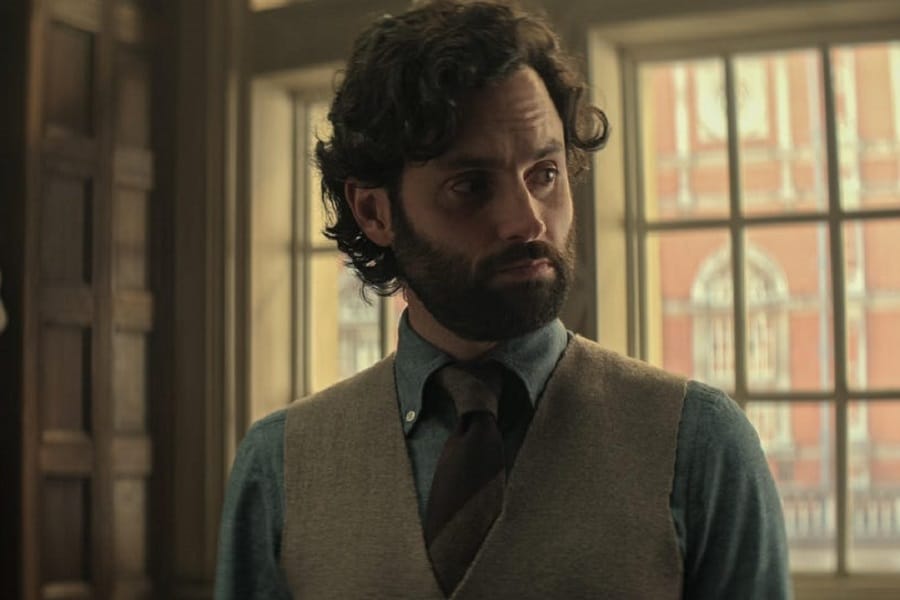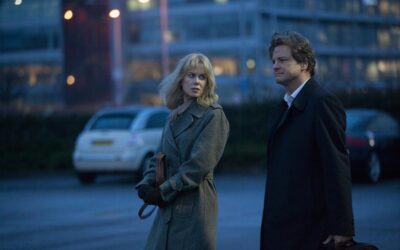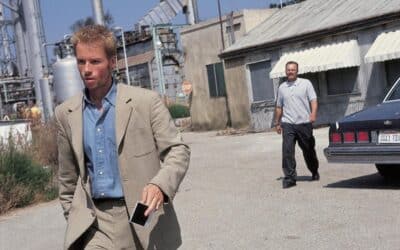
You, Book vs Show
“You” is a psychological thriller novel written by Caroline Kepnes and published in 2014. The story follows Joe Goldberg, a bookstore manager in New York City, who becomes obsessed with a customer named Guinevere Beck. In 2018, the book was adapted into a television series by Netflix. While both the book and the TV show have the same premise, there are some significant differences between the two that are worth exploring.
One of the most significant differences between the book and the TV show is the way Joe’s character is portrayed. In the book, Joe is more introspective and introspective, while in the TV show, he is more extroverted and outgoing. The show also humanizes Joe’s character more than the book, as we see more of his backstory and get to know him on a deeper level. One of the most noticeable differences between Joe in the book and TV show is his appearance. In the book, Joe is described as having average looks, while in the TV show, he is played by actor Penn Badgley, who is considered to be conventionally attractive. This change in appearance is notable because it affects the way Joe is perceived by the audience. In the book, Joe is more relatable, as he is not physically exceptional, while in the TV show, his attractiveness may make some viewers more inclined to overlook his disturbing behavior.
Additionally, in the book, Joe’s inner thoughts are more introspective, and he is portrayed as having a dry and self-aware sense of humor. In the TV show, Joe is portrayed as more confident and charismatic, making him a more charming and engaging character.
Another significant difference between the book and the TV show is the way that Joe’s backstory is revealed. In the book, Joe’s past is gradually revealed through his inner monologues and memories. In contrast, the TV show uses flashbacks to show Joe’s troubled childhood and abusive relationship with his father, which explains his behavior and motivations.
The relationship between Joe and Beck, the love interest in the story, also differs between the book and the TV show. In the book, Beck is portrayed as more manipulative and selfish, which makes Joe’s obsessive behavior seem more justifiable. However, in the TV show, Beck is portrayed as a sympathetic and likable character, which makes Joe’s actions more disturbing.
Additionally, in the book, Joe’s obsession with Beck is more internal, as his thoughts and actions are mostly kept to himself. In the TV show, Joe’s obsession with Beck is more external, as he stalks her on social media and in person, which creates a more suspenseful and dramatic storyline.
The supporting characters in the book and TV show also differ in their portrayal of Joe. In the book, Joe’s neighbor, Paco, plays a significant role in the story and is portrayed as a victim of abuse. In the TV show, Paco’s character is less developed, and the focus is on Joe’s interactions with other wealthy and powerful people in Los Angeles.
Another difference is the setting. The setting is a crucial element in any story, as it sets the stage for the events that unfold and shapes the characters’ behavior. In “You” by Caroline Kepnes, the book’s setting takes place in New York City, while the TV show adaptation (after season 1) takes place in Los Angeles. This change in setting has a significant impact on the story, characters, and overall tone of the narrative.
New York City, the original setting in the book, is a bustling metropolis that embodies the fast-paced, no-nonsense attitude of the East Coast. The book’s New York City setting emphasizes the isolation and anonymity of modern urban life, which allows Joe to easily blend into the city’s crowds and hide his darker tendencies. In the book, the city’s busy streets and crowded subways provide an escape for Joe from his thoughts and actions.
In contrast, Los Angeles, the setting of the TV show, is a sprawling city that epitomizes the glamour and beauty of the West Coast. The TV show’s Los Angeles setting highlights the city’s culture of superficiality and fame-seeking, which plays a significant role in the story’s events. The city’s sunny beaches and palm tree-lined streets create a stark contrast to Joe’s dark and disturbing behavior.
One of the most significant differences between the book and the TV show’s setting is the impact it has on the characters’ behavior. In the book, Joe is more reserved and introspective, as he navigates the anonymity of New York City. However, in the TV show’s Los Angeles setting, Joe is more outgoing and aggressive, as he struggles to fit into the city’s culture of celebrity obsession and social climbing.
The change in setting also impacts the supporting characters. In the book, Joe’s neighbor, Paco, is a significant character who plays a pivotal role in the story. However, in the TV show, Paco’s character is less developed, and the focus is on Joe’s interactions with the wealthy and powerful people in Los Angeles.
The setting also changes the overall tone of the story. The book’s New York City setting creates a darker and more ominous tone, as Joe’s behavior becomes more disturbing against the backdrop of the city’s frenzied pace. In contrast, the TV show’s Los Angeles setting creates a more lighthearted and satirical tone, as Joe’s behavior is juxtaposed against the city’s shallow and image-obsessed culture.
The TV show also deviates from the book in terms of the supporting characters. Some characters are omitted from the show, while others are given more screen time. For example, in the book, Joe’s neighbor Ethan is a minor character, but in the show, he becomes a more significant part of the story.
Another significant difference between the book and the TV show is the pacing. The book moves at a more leisurely pace, with a lot of the story taking place in Joe’s head. In contrast, the TV show is fast-paced, with more action and suspense. This change in pacing is likely due to the nature of television, which requires a more dramatic and engaging storyline.
Finally, the ending of the book and the TV show are different. While both end in a similar way, the TV show adds an additional twist that sets up a potential second season.
Despite these differences, both the book and the TV show are excellent in their own way. The book offers a more in-depth exploration of Joe’s character and thought process, while the TV show offers a more action-packed and suspenseful version of the story. Fans of the book will appreciate the TV show’s faithful adaptation of the source material, while those new to the story will enjoy the fresh take on the characters and plot.
“You” is a gripping and unsettling story that will keep you on the edge of your seat. While the book and the TV show differ in some significant ways, they both offer an engaging and thrilling ride. Whether you prefer the introspective nature of the book or the fast-paced excitement of the TV show, “You” is a story that is sure to leave an impression on anyone who experiences it.
More Psychological Thriller Features
Labyrinth of the mind
Intricate mind games and compelling narratives
Psychological Manipulation in Thrillers
Memory, Identity, and Madness
The Dark Side of the Mind
The darkest corners of the mind are not just settings but essential characters



